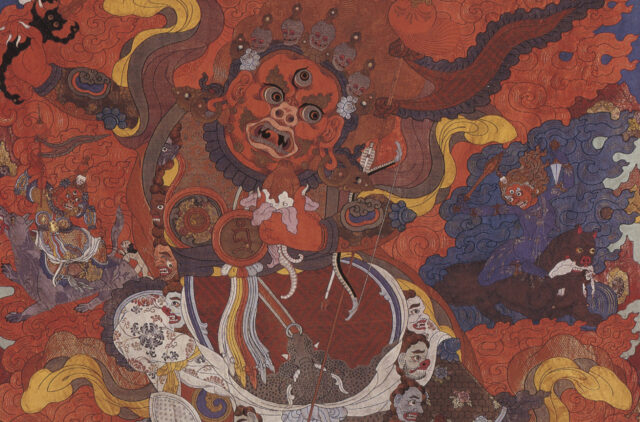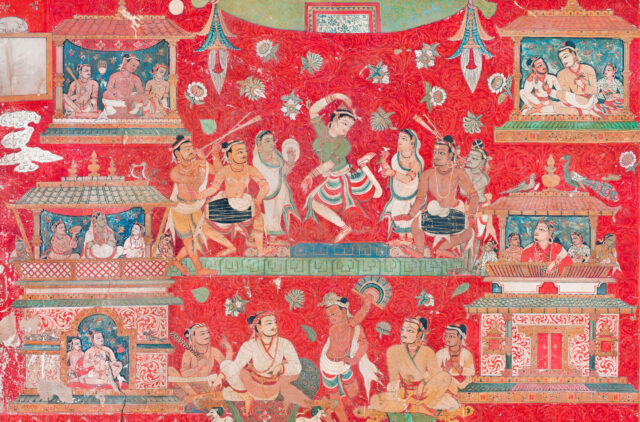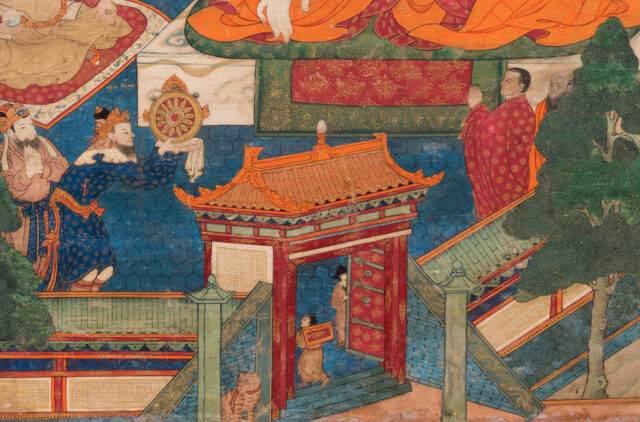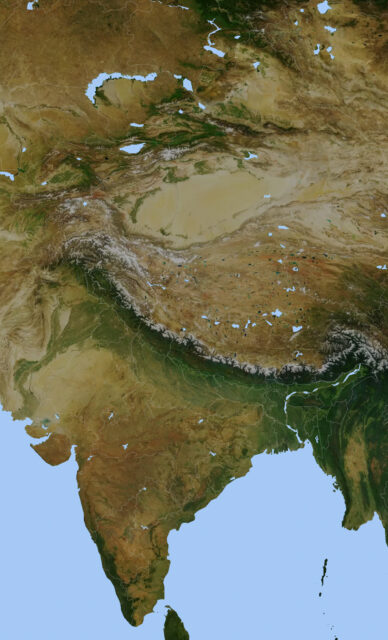Stay connected. Sign up for the Rubin Museum’s monthly newsletter to receive updates about upcoming exhibitions, programs, digital features, and more.
SubscribeTibetan Empire
Tibetan Empire
In the early seventh century, a line of kings from the Yarlung Valley united disparate people on the Tibetan Plateau into a powerful, centralized state. With their capital at Lhasa, these kings proclaimed themselves emperors, or tsenpo. Their armies conquered much of the Himalayas, Central Asia, and western China. Tibetans developed a written script for the Tibetan language and Buddhism was adopted as a state religion. The conversion to Buddhism was contested by an indigenous group of ritualists called Bon, creating political turmoil. After the assassination of emperor Langdarma in 842, the Tibetan empire fragmented and collapsed. Nevertheless, the myths and memories of the empire continue to be a central part of Tibetan identity.



